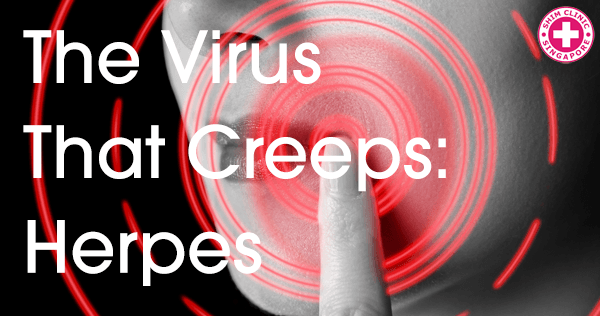The herpes simplex virus comes in two strains, HSV-1 and HSV-2. HSV-1. This STD most commonly causes oral herpes (cold sores) and HSV-2 genital herpes though both can cause infection of the mouth or genitals. The HSV viruses are large double-stranded DNA viruses and members of the Herpesviridae family which also includes Epstein-Barr Virus, the Chickenpox virus and the virus responsible for Kaposi’s sarcoma among others.
It is a very old human pathogen, with references to herpes epidemics in ancient Greek writings. Indeed the name herpes comes from the Greek word for latent or creeping, referring to the dormant and active cycles. The virus moves into nerve cells where it falls into a dormant state, re-emerging to cause periodical infections during times of low immunity. There is no cure, once infected the virus remains with its host for life.
Symptoms and Infection
Symptoms include the appearance of blisters or sores, irritation when urinating and especially in the earlier stages of infection it can have systematic flu-like symptoms. Condoms can reduce the risk of transmitting the Herpes virus but do not prevent it if sores are be covered by the condom. Abstinence,when symptoms appear, is the best way to prevent transmission. The virus can be asymptomatic and transferred person to person in the absence of symptoms. Very rarely do the virus can infect hands, eyes or even the brain. Viral encephalitis with Herpes is rare but has been seen in adults. More commonly it is seen in newborns where infection has occurred during birth.
Oral sex can infect the genital region with HSV-1. Dental dams may reduce risk, but again, will not work if sores are not covered by a barrier. Again, abstinence while symptoms are present, is the best prevention.
Treatment
While there is no cure, there are drugs to manage the outbreaks. Antiviral acyclovir (Zovirax), famciclovir (Famvir), and valacyclovir (Valtrex) are given as a 7-10 day course of pills and more severe cases may warrant treatment with intravenous (IV) acyclovir. For those who have severe outbreaks, suppression treatment with a daily dose of antivirals may be appropriate. Topical creams do not appear to be very effective in the treatment of genital herpes. See your doctor for the most suitable management plan for you.

